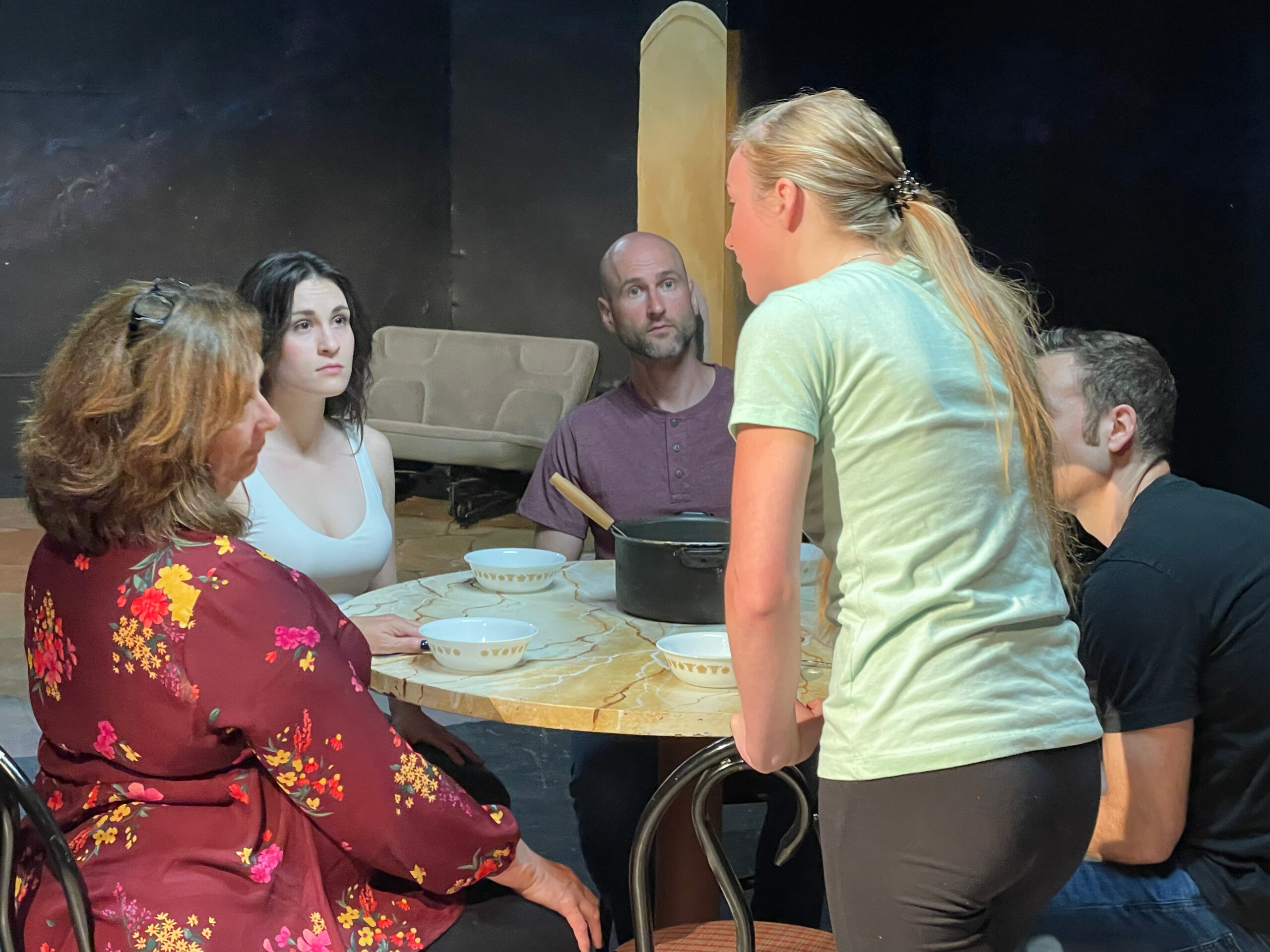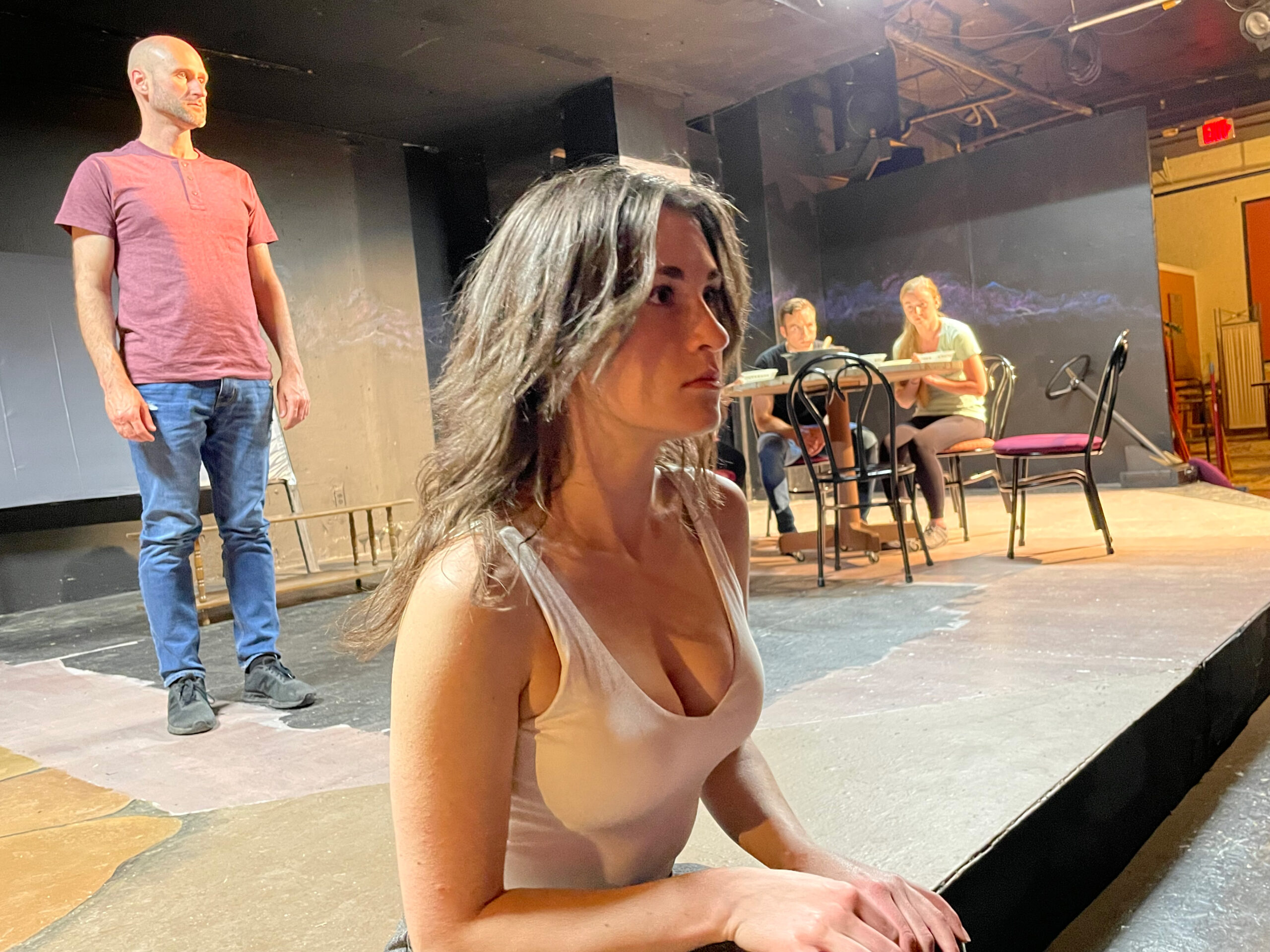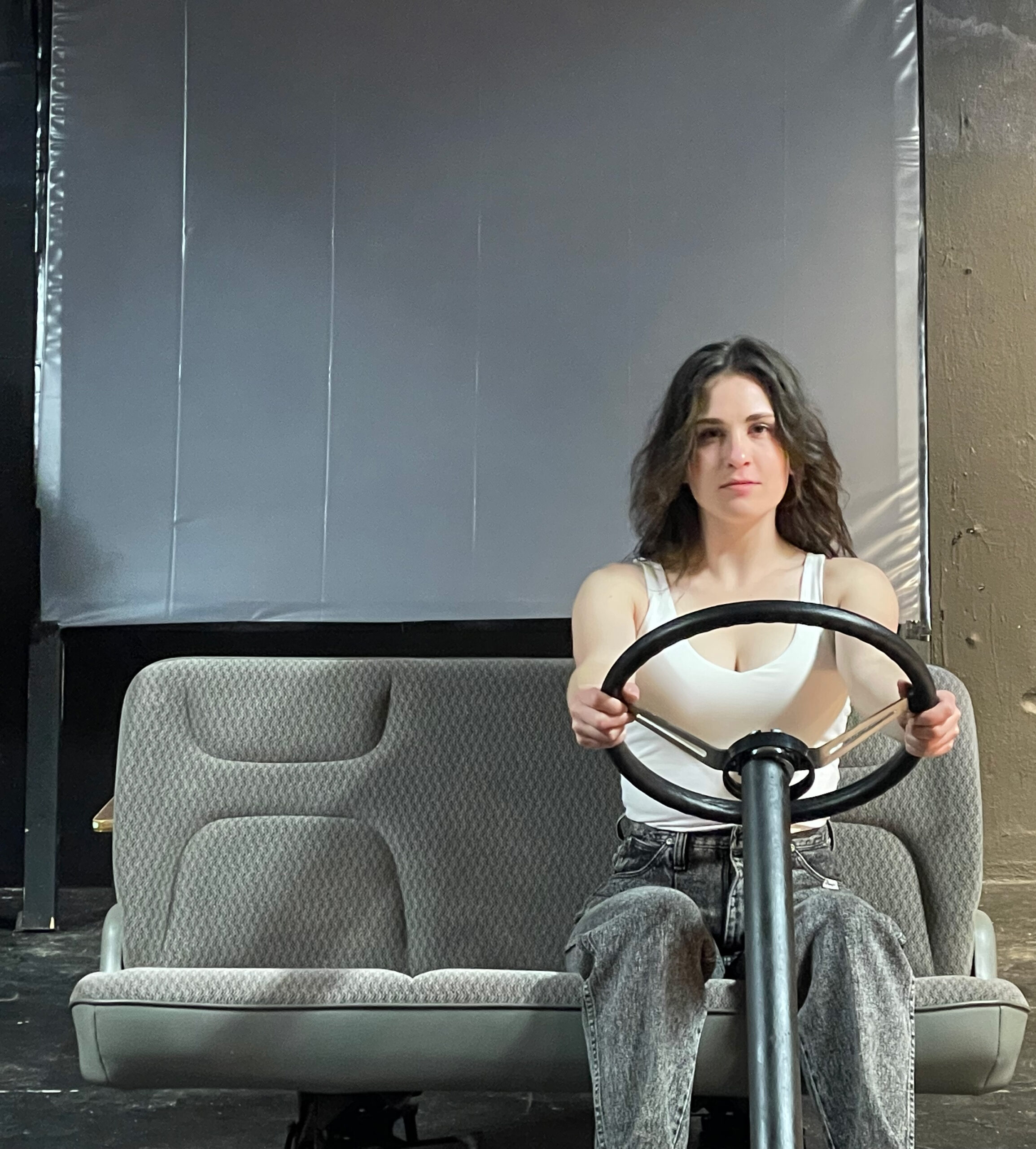 By George Basler
By George Basler
How I Learned to Drive deals with a disturbing topic: How an adolescent girl is groomed for a sexually abusive relationship by an older adult.
“Absolutely it’s hard to watch,” said Samantha Rose, who is directing a production that opens Friday (June 10) and runs for three weekends at KNOW Theatre in downtown Binghamton. But it’s not an exercise in sensationalism. It’s beautifully written, emotionally complex and, at times surprisingly funny even as it deals with a dark topic, Rose said.
“There are layers of depth behind all the characters,” she added. “The story could easily fall into caricatures, but it doesn’t fall into that.”
In How I Learned to Drive, American playwright Paula Vogel tells how Li’I Bit comes to terms with a sexually abusive relationship with her Uncle Peck during her adolescence.
Critics were enthusiastic when it premiered off-Broadway in 1997, starring Mary Louise Parker as Li’l Bit and David Morse as Uncle Peck. A year later, the work won the Pulitzer Prize for Drama. A revival with Parker and Morse opened on Broadway this spring and again won raves. Parker and Morse earned Tony nominations for best actress and best actor in a play, and the work was nominated for best revival of a play.
Rose said she was approached to direct the play after directing short works as part of KNOW’s annual Playwrights and Artists Festival and working as assistant director of a production of Gidion’s Knot last fall. The 24-year-old majored in English and theater at Binghamton University and is currently working toward a master’s degree in teaching.
How I Learned to Drive tells a story many women can relate to, she said. “Vogel has done a phenomenal job,” she added. “Everything is strung out beautifully, and it builds to a crescendo at the end.”
The KNOW Theatre cast is headed by Anna Simek as Li’l Bit and Joe Hoffmann as Uncle Peck. Both have appeared in numerous productions at KNOW and other local theaters.
 Simek said she was drawn to How I Learned to Drive by the way in which Vogel captures the vulnerabilities experienced by young women in a truthful, honest and powerful way. At the same time, Vogel has injected moments of humor into the play. Audience members will laugh, even if they feel a little strange for doing so, she said.
Simek said she was drawn to How I Learned to Drive by the way in which Vogel captures the vulnerabilities experienced by young women in a truthful, honest and powerful way. At the same time, Vogel has injected moments of humor into the play. Audience members will laugh, even if they feel a little strange for doing so, she said.
The role of Li’l Bit “is “absolutely a challenge,” because of the content and because the role requires an actress to play ages from 11 to 34, the 26-year-old, she added. There are lines that “require me to dig deep inside and think of myself at different ages,” Simek noted.
Hoffmann said he was attracted by Vogel’s “spare, naturalistic language” but called Uncle Peck, “on an emotional level … by far the most difficult part I’ve had to play.” The man is a product of his environment who is filled with self-loathing, and that’s hard to shake, he said. “I don’t say this to justify any of his actions, but I can’t pass judgment on a character I’m playing,” Hoffmann said.
Besides Simek and Hoffmann, How I Learned to Drive features a three-person “Greek chorus.” Vito Longo, Kirsten Whistle and Lori Gordon Wilmot play the other characters in the lives of Uncle Peck and Li’l Bit.
“It’s a terrific ensemble,” Hoffmann said, adding that Rose has brought “fantastic ideas” to her direction” while the cast members are “putting their hearts into the production.”
Rose acknowledged that How I Learned to Drive will be uncomfortable for some. But it deals with a topic that needs to be seen and talked about, she believes.
“I think that’s what good theater is. It’s about real events and real people,” she said.
IF YOU GO: KNOW Theatre, 74 Carroll St., Binghamton, will present How I Learned to Drive from June 10-26. Performances will be 8 p.m. Fridays and Saturdays and 3 p.m. Sundays. Tickets are $25 ($20 for seniors, $15 for students); purchase at knowtheatre.org. A pay-what you-can-night will be offered at 8 p.m. Thursday, June 16.
KNOW follows federal, state and local health and safety guidelines using the CDC’s COVID-19 Community Level report, updated weekly, as a guide. If Broome County is listed as being a “low” or “moderate” risk area, masks are recommended, but not required. If the county is listed as a “high” risk area, masks are required at all times during performances.




































